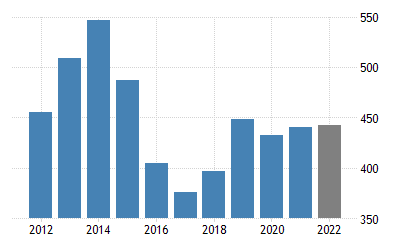According to the 3rd Quarter report released by the National Bureau of Statistics (NBS), the Information and Communication Technology(ICT) have contributed an all-time high of 5% to the nation’s GDP in the last 5 quarters
According to NBS, the non-oil sector expanded by 4.27 percent in the third quarter of 2022, with the growth being primarily fueled by the following industries: trade, transportation (road transport), finance and insurance (financial institutions), agriculture (crop production), and real estate, which together accounted for positive GDP growth.
According to Ajibola Olude, executive secretary of the association of telecommunication companies of Nigeria (ATCON), this growth is a result of the economy’s increased adoption of digital literacy. Many Nigerians are now well-versed in digital technology, particularly with regard to broadband penetration.
.
According to him, “the industry has also boosted its service in rural areas, indicating that technology is progressively expanding to the low and untented environment in the economy.”
According to data from the study, the nominal sector increased by 9.58 percent in the third quarter of 2022, compared to a 9.22 percent increase in the corresponding period of 2021.
While the real estate industry had a 0.87 percent gain from the 14.20 percent and 15.35 percent reported in 2021 and 2022, respectively.
The nation’s ICT sector, however, consists of four industries: publishing, motion picture, sound recording, and music production, telecommunications and information services, and broadcasting.
In conclusion, it can be said that the sector’s expansion was primarily fueled by income from the telephone, telex, facsimile, telegraph, and other income from satellite and internet.

